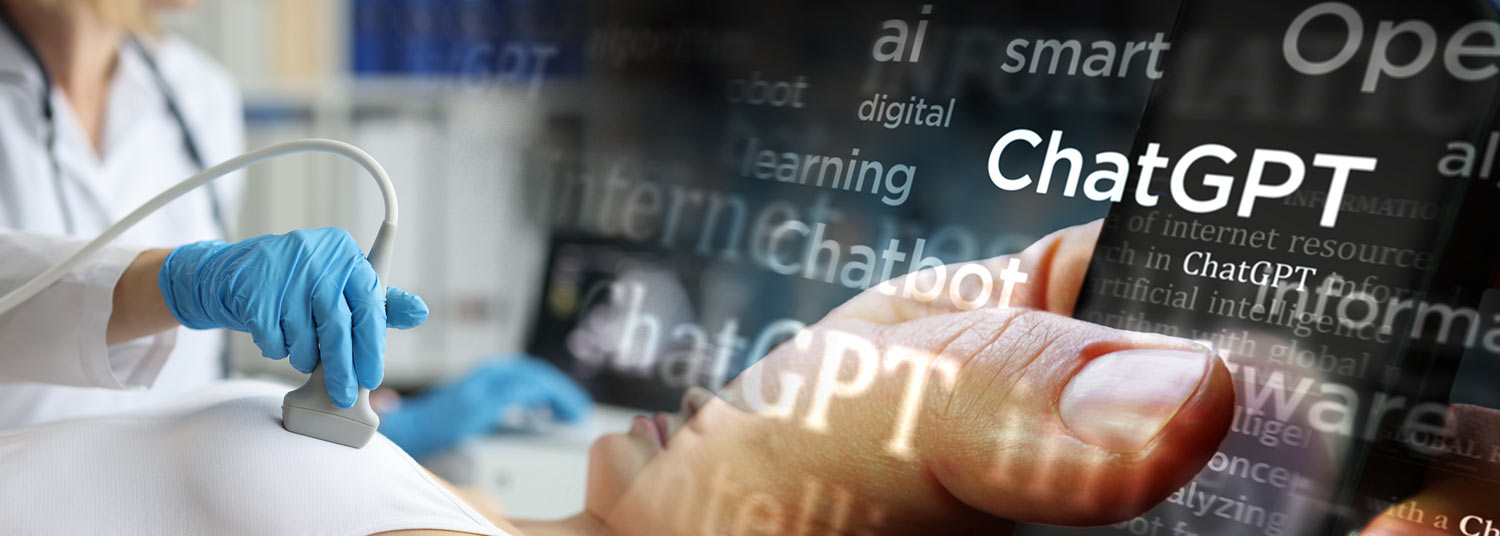April 04, 2023 | Deborah Kotz
Research Will Lead to Potential New Way to Promote Health Literacy to Consumers
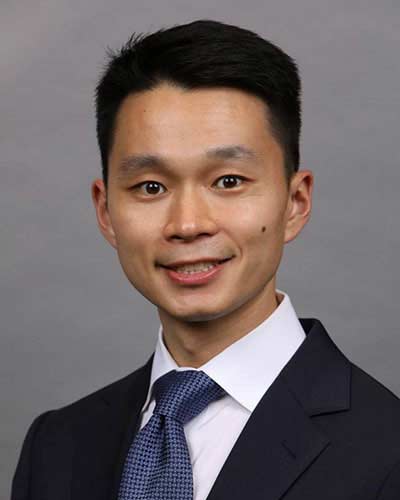 As more consumers turn to the newly available ChatGPT for health advice, researchers are eager to see whether the information provided by the artificial intelligence chatbot is reliable and accurate. A new study conducted by researchers at the University of Maryland School of Medicine (UMSOM) indicates that the answers generated provide correct information the vast majority of the time; sometimes, though, the information is inaccurate or even fictitious.
As more consumers turn to the newly available ChatGPT for health advice, researchers are eager to see whether the information provided by the artificial intelligence chatbot is reliable and accurate. A new study conducted by researchers at the University of Maryland School of Medicine (UMSOM) indicates that the answers generated provide correct information the vast majority of the time; sometimes, though, the information is inaccurate or even fictitious.
Findings were published today in the journal Radiology.
In February 2023, UMSOM researchers created a set of 25 questions related to advice on getting screened for breast cancer. They submitted each question to ChatGPT three times to see what responses were generated. (The chatbot is known for varying its response each time a question is posed.) Three radiologists fellowship-trained in mammography evaluated the responses; they found that the responses were appropriate for 22 out of the 25 questions. The chatbot did, however, provide one answer based on outdated information. Two other questions had inconsistent responses that varied significantly each time the same question was posed.
“We found ChatGPT answered questions correctly about 88 percent of the time, which is pretty amazing,” said study corresponding author Paul Yi , MD, Assistant Professor of Diagnostic Radiology and Nuclear Medicine at UMSOM and Director of the UM Medical Intelligent Imaging Center (UM2ii). “It also has the added benefit of summarizing information into an easily digestible form for consumers to easily understand.” ChatGPT correctly answered questions about the symptoms of breast cancer, who is at risk, and questions on the cost, age, and frequency recommendations concerning mammograms.
Resources for the Media:
The downside is that it is not as comprehensive in its responses as what a person would normally find on a Google search. “ChatGPT provided only one set of recommendations on breast cancer screening, issued from the American Cancer Society, but did not mention differing recommendations put out by the Centers for Disease Control and Prevention (CDC) or the US Preventative Services Task Force (USPSTF),” said study lead author Hana Haver, MD, a radiology resident at University of Maryland Medical Center.
In one response deemed by the researchers to be inappropriate, ChatGPT provided an outdated response to planning a mammogram around COVID-19 vaccination. The advice to delay a mammogram for four to six weeks after getting a COVID-19 shot was changed in February 2022, and the CDC endorses the USPSTF guidelines, which don’t recommend waiting. Inconsistent responses were given to questions concerning an individual’s personal risk of getting breast cancer and on where someone could get a mammogram.
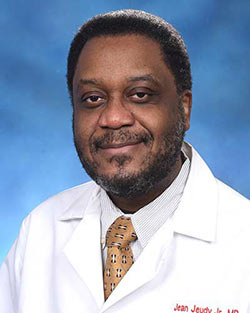 Jean Jeudy, MD, Professor of Diagnostic Radiology and Nuclear Medicine and Radiology Vice Chair of Informatics at UMSOM was a co-author on the study. Researchers from the Massachusetts General Hospital and the Johns Hopkins University School of Medicine also participated in this study. The study was funded by the individual institutions.
Jean Jeudy, MD, Professor of Diagnostic Radiology and Nuclear Medicine and Radiology Vice Chair of Informatics at UMSOM was a co-author on the study. Researchers from the Massachusetts General Hospital and the Johns Hopkins University School of Medicine also participated in this study. The study was funded by the individual institutions.
“We’ve seen in our experience that ChatGPT sometimes makes up fake journal articles or health consortiums to support its claims,” said Dr. Yi. “Consumers should be aware that these are new, unproven technologies, and should still rely on their doctor, rather than ChatGPT, for advice.”
He and his colleagues are now analyzing how ChatGPT fares for lung cancer screening recommendations and identifying ways to improve the recommendations made by ChatGPT to be more accurate and complete – as well as understandable to those without a high level of education.
“We are witnessing an unprecedented revolution in health care where the integration of artificial intelligence and immersive technologies will fundamentally change the way we treat patients," said Mark T. Gladwin, MD, Dean, University of Maryland School of Medicine, Vice President for Medical Affairs, University of Maryland, Baltimore, and the John Z. and Akiko K. Bowers Distinguished Professor. "ChatGPT and other language models are an exciting part of this transformation – providing access to a vast database of medical knowledge and potentially offering personalized advice based on specific symptoms and a patient’s medical history, albeit with certain limitations, as this study points out.”
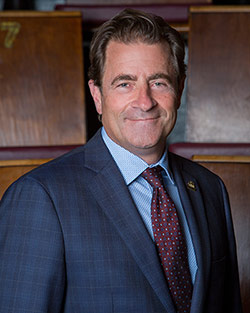
The University of Maryland, Baltimore (UMB), University of Maryland, College Park (UMCP) and University of Maryland Medical System (UMMS) recently launched plans for a new Institute for Health Computing that will leverage recent advances in artificial intelligence and computing to create a premier learning health care system that evaluates both de-identified and secure digitized medical health data to diagnose, prevent and treat diseases in patients. It is the strategic initiative of University of Maryland Strategic Partnership: MPowering the State, which brings together the complementary strengths of UMB and UMCP to strengthen Maryland’s innovation economy, promote interdisciplinary research, and create more educational opportunities for students.
"Academic medicine has a unique opportunity to lead this new era of medicine, with medical schools on the front lines of biomedical research, access to ‘big data,’ clinical care, and education," said Dean Gladwin. "Our vision is for this to become the ‘East Coast Silicon Valley’ for health computing -- embracing and harnessing the power of clinical analytics and precision medicine to enhance patient care and provide population health services.”
About the University of Maryland School of Medicine
Now in its third century, the University of Maryland School of Medicine was chartered in 1807 as the first public medical school in the United States. It continues today as one of the fastest growing, top-tier biomedical research enterprises in the world -- with 46 academic departments, centers, institutes, and programs, and a faculty of more than 3,000 physicians, scientists, and allied health professionals, including members of the National Academy of Medicine and the National Academy of Sciences, and a distinguished two-time winner of the Albert E. Lasker Award in Medical Research. With an operating budget of more than $1.3 billion, the School of Medicine works closely in partnership with the University of Maryland Medical Center and Medical System to provide research-intensive, academic, and clinically based care for nearly 2 million patients each year. The School of Medicine has nearly $600 million in extramural funding, with most of its academic departments highly ranked among all medical schools in the nation in research funding. As one of the seven professional schools that make up the University of Maryland, Baltimore campus, the School of Medicine has a total population of nearly 9,000 faculty and staff, including 2,500 students, trainees, residents, and fellows. The combined School of Medicine and Medical System (“University of Maryland Medicine”) has an annual budget of over $6 billion and an economic impact of nearly $20 billion on the state and local community. The School of Medicine, which ranks as the 8th highest among public medical schools in research productivity (according to the Association of American Medical Colleges profile) is an innovator in translational medicine, with 606 active patents and 52 start-up companies. In the latest U.S. News & World Report ranking of the Best Medical Schools, published in 2021, the UM School of Medicine is ranked #9 among the 92 public medical schools in the U.S., and in the top 15 percent (#27) of all 192 public and private U.S. medical schools. The School of Medicine works locally, nationally, and globally, with research and treatment facilities in 36 countries around the world. Visit medschool.umaryland.edu
Contact
Deborah Kotz
Senior Director of Media Relations
Office of Public Affairs & Communications
University of Maryland School of Medicine
Email: DKotz@som.umaryland.edu
o: 410-706-4255
c: 410-804-0054
t: @debkotz2
Related stories
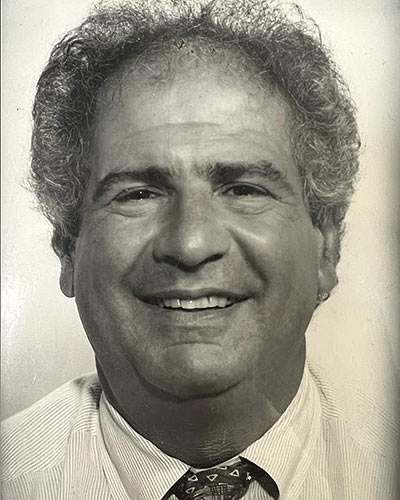
Friday, December 08, 2023
In Memoriam: UM School of Medicine Honors the Life of Outstanding Educator and Former Radiology Vice Chair, Robert D. Pugatch, MD
The University of Maryland School of Medicine (UMSOM) community is deeply saddened to share the passing of Robert D. Pugatch, MD, a beloved educator and former Vice Chair of the Department of Diagnostic Radiology and Nuclear Medicine. An expert in thoracic imaging, he was passionately known as one of the best in medical education, dedicated to mentoring and training generations of radiologists and physicians.

Tuesday, May 02, 2023
AI in Medical Imaging Could Magnify Health Inequities, Study Finds
Artificial intelligence (AI) technology in the medical field has the possibility to automate diagnoses, decrease physician workload, and even to bring specialized healthcare to people in rural areas or developing countries. However, with possibility comes potential pitfalls.
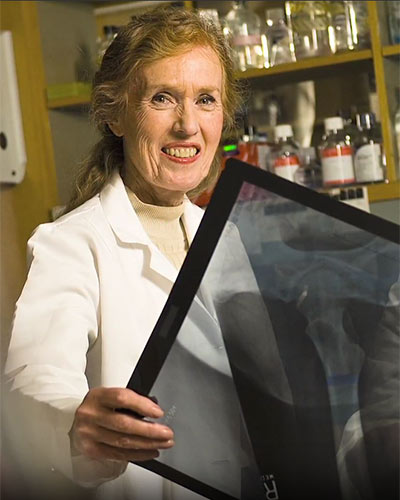
Monday, October 29, 2018
UMSOM Honors Breast Cancer Awareness Month, Our Research Continues Toward Combating this Disease
October is Breast Cancer Awareness Month, and researchers at the University of Maryland School of Medicine (UMSOM) continue in their work to help combat this disease that impacts more than 315,000 women in the U.S. each year.
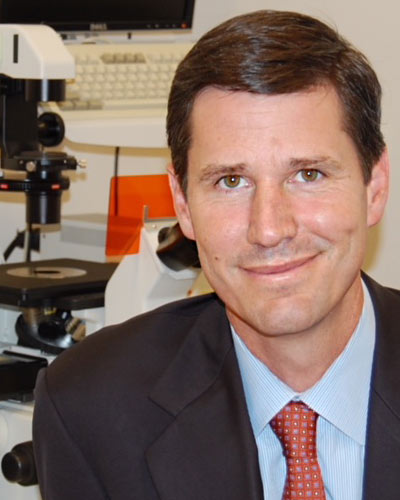
Thursday, June 07, 2018
Most Early-Stage Breast Cancer Patients with Intermediate Risk of Recurrence can Safely Avoid Chemotherapy
The majority of women with early-stage estrogen receptor (ER)-positive breast cancer, considered at intermediate risk of having their cancer recur based on a 21-gene test, can safely forgo treatment with chemotherapy, according to a large multicenter clinical study published in the New England Journal of Medicine.
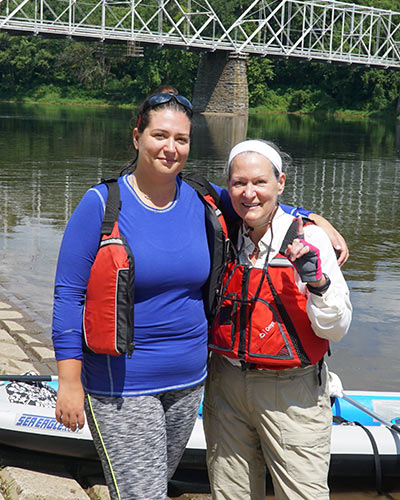
Tuesday, August 15, 2017
Mother-Daughter Kayaking Team to Complete 300-Mile Trip in Baltimore to Honor Late UM SOM Scientist Dr. Angela Brodie
Patients who receive life-saving care from a physician or surgeon are often so grateful that they make generous gifts to medical schools and hospitals where they were treated.
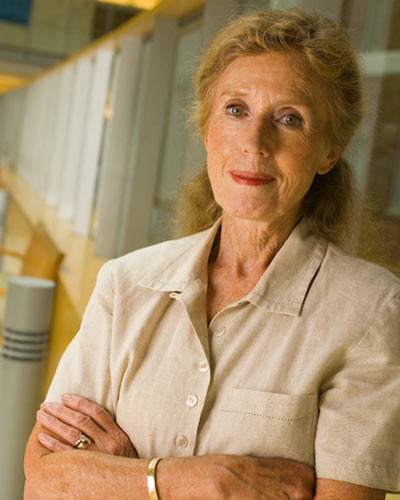
Wednesday, June 07, 2017
In Memoriam: Angela Hartley Brodie, Ph.D., Internationally Renowned Breast Cancer Researcher at University of Maryland School of Medicine
Angela Hartley Brodie, PhD, Professor Emeritus in the Department of Pharmacology at the University of Maryland School of Medicine, and an internationally recognized scientist whose groundbreaking cancer research is considered among the greatest advances in treating breast cancer, passed away of complications from Parkinson’s disease at her home in Fulton, MD. She was 82.

